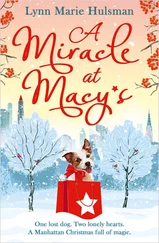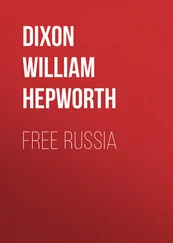Nikolai Nekrasov - Who Can Be Happy and Free in Russia?
Здесь есть возможность читать онлайн «Nikolai Nekrasov - Who Can Be Happy and Free in Russia?» весь текст электронной книги совершенно бесплатно (целиком полную версию без сокращений). В некоторых случаях можно слушать аудио, скачать через торрент в формате fb2 и присутствует краткое содержание. Год выпуска: 2005, Жанр: Поэзия, на английском языке. Описание произведения, (предисловие) а так же отзывы посетителей доступны на портале библиотеки ЛибКат.
- Название:Who Can Be Happy and Free in Russia?
- Автор:
- Жанр:
- Год:2005
- ISBN:нет данных
- Рейтинг книги:3 / 5. Голосов: 1
-
Избранное:Добавить в избранное
- Отзывы:
-
Ваша оценка:
- 60
- 1
- 2
- 3
- 4
- 5
Who Can Be Happy and Free in Russia?: краткое содержание, описание и аннотация
Предлагаем к чтению аннотацию, описание, краткое содержание или предисловие (зависит от того, что написал сам автор книги «Who Can Be Happy and Free in Russia?»). Если вы не нашли необходимую информацию о книге — напишите в комментариях, мы постараемся отыскать её.
Who Can Be Happy and Free in Russia? — читать онлайн бесплатно полную книгу (весь текст) целиком
Ниже представлен текст книги, разбитый по страницам. Система сохранения места последней прочитанной страницы, позволяет с удобством читать онлайн бесплатно книгу «Who Can Be Happy and Free in Russia?», без необходимости каждый раз заново искать на чём Вы остановились. Поставьте закладку, и сможете в любой момент перейти на страницу, на которой закончили чтение.
Интервал:
Закладка:
'The time was when I was 690
Your judge; and I judged you,
In all things obeying
My conscience. But I now
Am guiltier far
Than were you. Be my judges!'
He bowed to our feet,
The demented one, sighing,
Then stood up and crossed himself,
Trembling all over;
It pained us to witness 700
How he, of a sudden,
Fell down on his knees there
At Vlásevna's feet.
Well, all was put right soon,
The nobles have fingers
In every small corner,
The lad was brought back
And young Mítyenka started;
They say that his service
Did not weigh too heavy, 710
The prince saw to that.
And we, as a penance,
Imposed upon Érmil
A fine, and to Vlásevna
One part was given,
To Mítya another,
The rest to the village
For vodka. However,
Not quickly did Érmil
Get over his sorrow: 720
He went like a lost one
For full a year after,
And—though the whole district
Implored him to keep it—
He left his position.
He rented the mill, then,
And more than of old
Was beloved by the people.
He took for his grinding
No more than was honest, 730
His customers never
Kept waiting a moment,
And all men alike:
The rich landlord, the workman.
The master and servant,
The poorest of peasants
Were served as their turn came;
Strict order he kept.
Myself, I have not been
Since long in that district, 740
But often the people
Have told me about him.
And never could praise him
Enough. So in your place
I'd go and ask Érmil."
"Your time would be wasted,"
The grey-headed pope,
Who'd before interrupted,
Remarked to the peasants,
"I knew Érmil Gírin, 750
I chanced in that district
Some five years ago.
I have often been shifted,
Our bishop loved vastly
To keep us all moving,
So I was his neighbour.
Yes, he was a peasant
Unique, I bear witness,
And all things he owned
That can make a man happy: 760
Peace, riches, and honour,
And that kind of honour
Most valued and precious,
Which cannot be purchased
By might or by money,
But only by righteousness,
Wisdom and kindness.
But still, I repeat it,
Your time will be wasted
In going to Érmil: 770
In prison he lies."
"How's that?"
"God so willed it.
You've heard how the peasants
Of 'Log' the Pomyéshchick
Of Province 'Affrighted,'
Of District 'Scarce-Breathing,'
Of village 'Dumbfounded,'
Revolted 'for causes
Entirely unknown,' 780
As they say in the papers.
(I once used to read them.)
And so, too, in this case,
The local Ispravnik, [27] Chief of police.
The Tsar's high officials,
And even the peasants,
'Dumbfounded' themselves.
Never fathomed the reason
Of all the disturbance.
But things became bad, 790
And the soldiers were sent for,
The Tsar packed a messenger
Off in a hurry
To speak to the people.
His epaulettes rose
To his ears as he coaxed them
And cursed them together.
But curses they're used to,
And coaxing was lost,
For they don't understand it: 800
'Brave orthodox peasants!'
'The Tsar—Little Father!'
'Our dear Mother Russia!'
He bellowed and shouted
Until he was hoarse,
While the peasants stood round him
And listened in wonder.
"But when he was tired
Of these peaceable measures
Of calming the riots, 810
At length he decided
On giving the order
Of 'Fire' to the soldiers;
When all of a sudden
A bright thought occurred
To the clerk of the Volost: [28] An administrative unit consisting of a group of villages.
'The people trust Gírin,
The people will hear him!'
"'Then let him be brought!'" [29] The end of the story is omitted because of the interference of the Censor.
A cry has arisen 820
"Have mercy! Have mercy!"
A check to the story;
They hurry off quickly
To see what has happened;
And there on a bank
Of a ditch near the roadside,
Some peasants are birching
A drunken old lackey,
Just taken in thieving.
A court had been summoned, 830
The judges deciding
To birch the offender,
That each of the jury
(About three and twenty)
Should give him a stroke
Turn in turn of the rod….
The lackey was up
And made off, in a twinkling,
He took to his heels
Without stopping to argue, 840
On two scraggy legs.
"How he trips it—the dandy!"
The peasants cry, laughing;
They've soon recognized him;
The boaster who prated
So much of his illness
From drinking strange liquors.
"Ho! where has it gone to,
Your noble complaint?
Look how nimble he's getting!" 850
"Well, well, Little Father,
Now finish the story!"
"It's time to go home now,
My children,—God willing,
We'll meet again some day
And finish it then…."
The people disperse
As the dawn is approaching.
Our peasants begin
To bethink them of sleeping, 860
When all of a sudden
A "troika" [30] A three-horsed carriage.
comes flying
From no one sees where,
With its silver bells ringing.
Within it is sitting
A plump little Barin,
His little mouth smoking
A little cigar.
The peasants draw up
In a line on the roadway, 870
Thus barring the passage
In front of the horses;
And, standing bareheaded,
Bow low to the Barin.
CHAPTER V
THE POMYÉSHCHICK
The "troika" is drawing
The local Pomyéshchick—
Gavríl Afanásich
Obólt-Oboldoóeff.
A portly Pomyéshchick,
With long grey moustaches,
Some sixty years old.
His bearing is stately,
His cheeks very rosy,
He wears a short top-coat, 10
Tight-fitting and braided,
Hungarian fashion;
And very wide trousers.
Gavríl Afanásich
Was probably startled
At seeing the peasants
Unflinchingly barring
The way to his horses;
He promptly produces
A loaded revolver 20
As bulky and round
As himself; and directs it
Upon the intruders:
"You brigands! You cut-throats!
Don't move, or I shoot!"
"How can we be brigands?"
The peasants say, laughing,
"No knives and no pitchforks,
No hatchets have we!"
"Who are you? And what 30
Do you want?" said the Barin.
"A trouble torments us,
It draws us away
From our wives, from our children,
Away from our work,
Kills our appetites too,
Do give us your promise
To answer us truly,
Consulting your conscience
Читать дальшеИнтервал:
Закладка:
Похожие книги на «Who Can Be Happy and Free in Russia?»
Представляем Вашему вниманию похожие книги на «Who Can Be Happy and Free in Russia?» списком для выбора. Мы отобрали схожую по названию и смыслу литературу в надежде предоставить читателям больше вариантов отыскать новые, интересные, ещё непрочитанные произведения.
Обсуждение, отзывы о книге «Who Can Be Happy and Free in Russia?» и просто собственные мнения читателей. Оставьте ваши комментарии, напишите, что Вы думаете о произведении, его смысле или главных героях. Укажите что конкретно понравилось, а что нет, и почему Вы так считаете.











